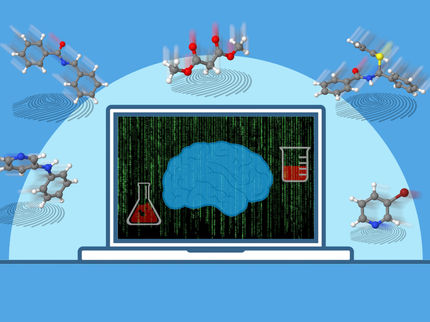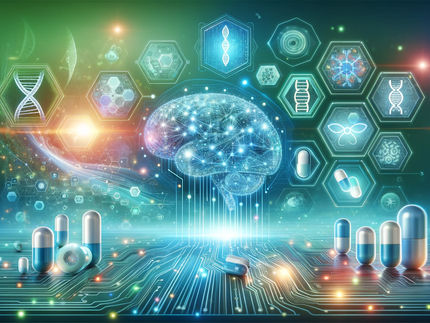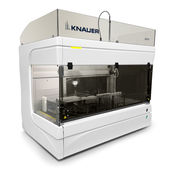Green chemistry: BAM investigates pharmaceutical production without solvents and CO₂ emissions
Pharmaceutical production with mechanochemistry
The Bundesanstalt für Materialforschung und -prüfung (BAM) is developing a more sustainable process to produce active pharmaceutical ingredients in a major EU project: The pilot project is intended to demonstrate the advantages of mechanochemistry for more environmentally friendly and CO2-neutral pharmaceutical production.

Mechanochemistry uses mechanical processes such as ball milling to set chemical reactions in motion and largely manages without solvents.
BAM
The consequences of global pharmaceutical production for the environment are serious: the manufacture of active pharmaceutical ingredients consumes large amounts of energy due to multi-stage work processes and is associated with a corresponding high CO2 footprint. Unused reaction products enter the soil via wastewater and pollute the environment. In particular, the intensive use of solvents, which are widely used in the pharmaceutical industry during the synthesis, burdens the eco-balance.
Yet a more sustainable and at the same time highly efficient and economical alternative to conventional pharmaceutical production already exists today: mechanochemistry. It uses mechanical processes, such as ball milling or resonance mixing, to set chemical reactions in motion. Here, the supply of thermal energy and the use of solvents can be largely dispensed with, because chemical and physical transformations are triggered here with mechanical force.
“In principle, the process has been known for centuries and has been used for several years by scientists for the synthesis of different materials," explains Franziska Emmerling, BAM expert for mechanochemical processes. "The technology developed in laboratories must now make the leap into industry, and chemists all over the world are working on this. So far, however, a lack of understanding of the exact mechanistic processes has hindered a broad application of the method. This is mainly because the reactions are very difficult to observe and systematise. Thus, the full potential of mechanochemistry remains untapped."
In the new joint project IMPACTIVE (Innovative Mechanochemical Processes to synthesise green active pharmaceutical ingredients), in which Franziska Emmerling is conducting research together with colleagues from seven European countries, this is precisely what is to be changed. In IMPACTIVE, six active pharmaceutical ingredients are being produced on a pilot scale for the first time without any solvents at all. The agents come from the fields of cancer medicine, antidiabetics and antihypertensives.
"At BAM we have developed so-called time-resolved methods with which the reactions can be precisely observed and described," says Emmerling's colleague Lucia Casali. "In a benchmarking exercise, we then want to show the advantages of mechanochemistry over conventional processes in the pharmaceutical sector.”
The potential is large: a recent Israeli study has shown that switching pharmaceutical production to mechanochemistry could reduce the industry's ecotoxicity and CO2 emissions by more than 85% - with a significant reduction in manufacturing costs.
In addition to BAM, eight other renowned European institutions are involved in IMPACTIVE, which is funded by the EU's Horizon 2020 funding programme, including the universities of Montpellier, Nijmegen and Louvain, Trinity College in Dublin and the Israeli Institute of Technology.
Other news from the department science
These products might interest you
Most read news
More news from our other portals
See the theme worlds for related content
Topic world Synthesis
Chemical synthesis is at the heart of modern chemistry and enables the targeted production of molecules with specific properties. By combining starting materials in defined reaction conditions, chemists can create a wide range of compounds, from simple molecules to complex active ingredients.

Topic world Synthesis
Chemical synthesis is at the heart of modern chemistry and enables the targeted production of molecules with specific properties. By combining starting materials in defined reaction conditions, chemists can create a wide range of compounds, from simple molecules to complex active ingredients.































































